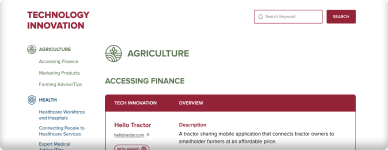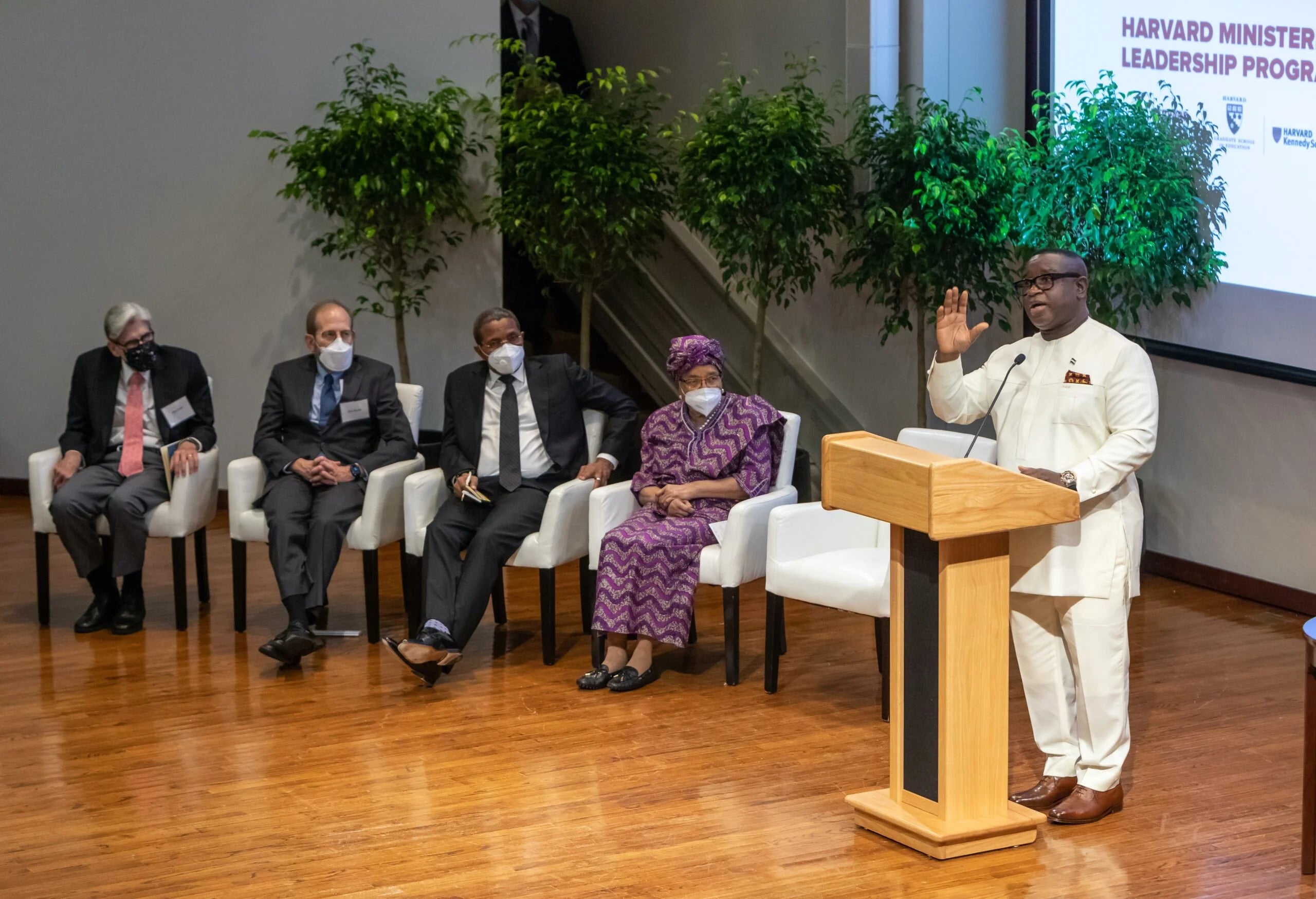
His Excellency Julius Maada Bio called on government Ministers from across Africa to keep focus on human development even while managing the repercussions of the COVID-19 pandemic. Opening the first in-person Harvard Ministerial Forum since the start of the pandemic, President Bio told Ministers invited to the annual Forum that one of the most important traits of effective leadership is the ability to adapt to changing circumstances without losing direction. He recalled that he had run for election as President on a five-point plan: transforming the country’s economy, human development, improving governance, improving infrastructure, and overhauling financing of the public sector. While the advent of the COVID-19 pandemic has created an additional challenge, President Bio’s believes that delivering on his principal priorities will make Sierra Leone a more resilient country. “To my mind, if we are to rebound faster from the impact of COVID-19…if we are to achieve inclusive and sustainable development, we must invest heavily in human capital development.” President Bio said.
In a part of the world “…where literally everything is a priority” he continued, “I have conceptualized human capital development as feeding the stomach-food security; feeding the mind-accessible and inclusive quality education; and taking care of the whole body—accessible quality health care.” President Bio added that there are important cross-cutting enabling investments including infrastructure, energy and water access, technology and digital access, public service delivery and good governance.
President Bio reflected on the economic calamity that the pandemic has brought on Africa including more intense social and economic hardship on the most vulnerable populations, deeply constrained national budgets, private investment flows largely stopped, massive unemployment particularly among young people, historically low productivity, disrupted supply chains and tourism flows all on top of the cost of mitigating the health effects of the on-going COVID-19 pandemic.
President Bio noted that these circumstances made it singularly difficult for government leaders to prioritize where to invest available resources and effort in order to turn the situation around. The President urged Ministers present to consider that the choices governments make “…do not take place in a vacuum.” He added, “Taking care of the whole [person] involves policies that reflect empathy, compassion, respect, protection and promotion of rights, fairness and justice.”
The full transcript of President Bio’s keynote remarks can be accessed here.


